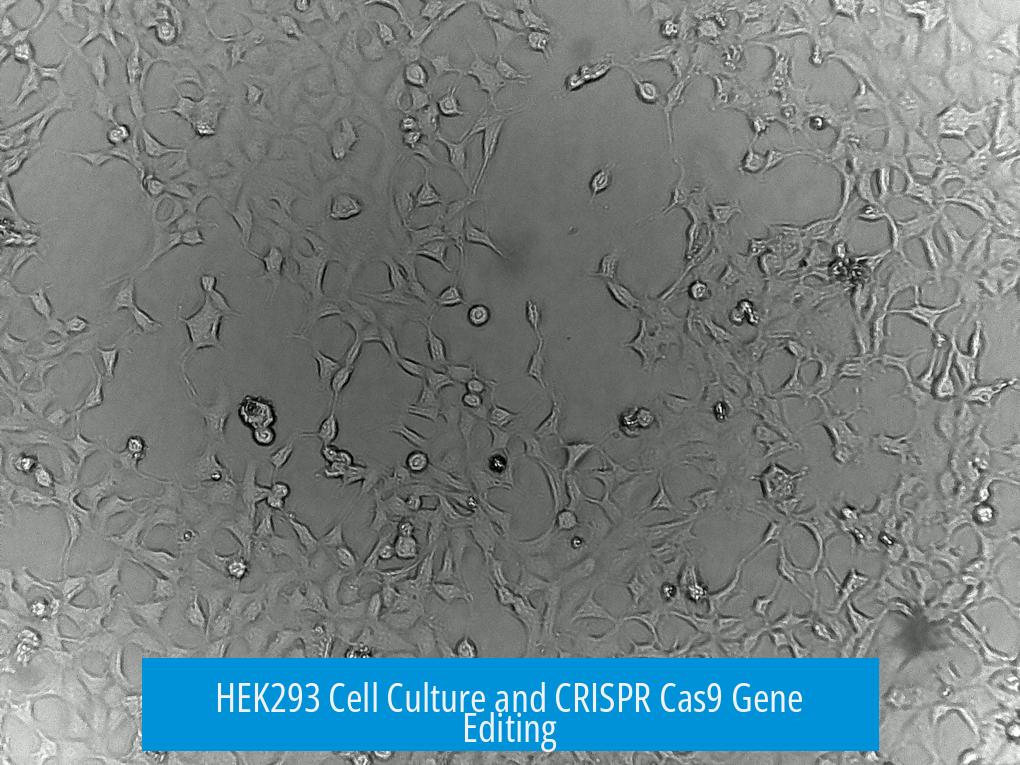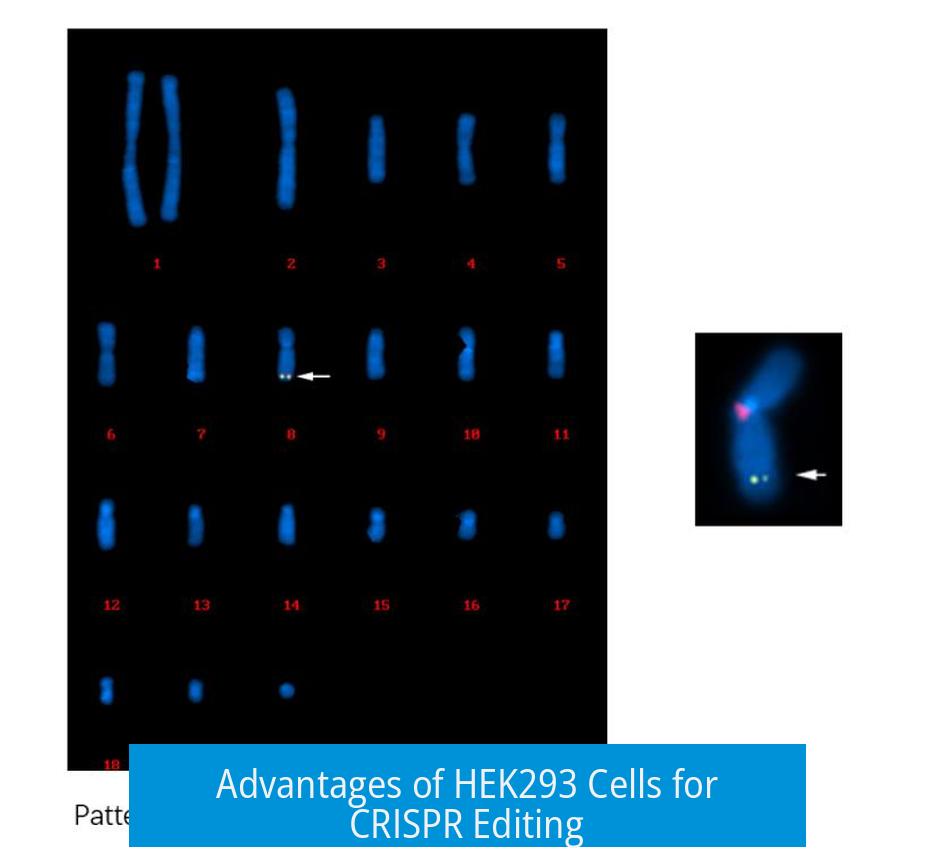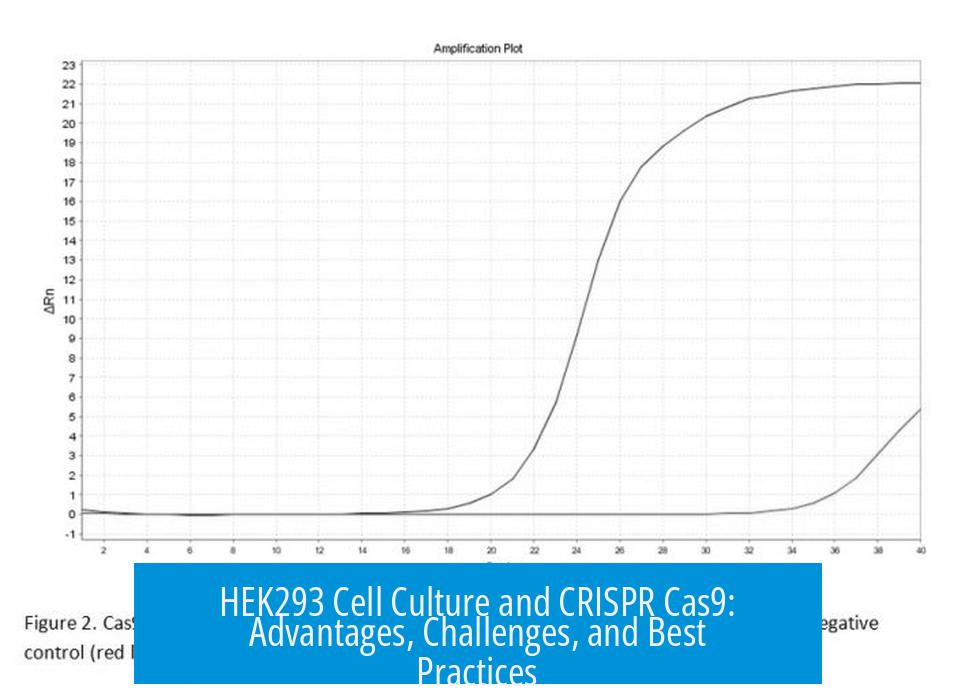HEK293 Cell Culture and CRISPR Cas9 Gene Editing

HEK293 cells serve as a valuable model for CRISPR Cas9 gene editing due to their relatively stable karyotype and ease of culture, making gene knock-ins more straightforward compared to cancer cell lines. This simplifies experimental design and enhances the reliability of genetic manipulation.
Advantages of HEK293 Cells for CRISPR Editing

- HEK293 cells are non-cancerous and exhibit fewer chromosomal abnormalities.
- They typically possess a stable diploid genome, facilitating targeted gene editing.
- The cell culture protocols for HEK293 are well-established, supporting reproducibility.
Experimental Design and Controls
Designing CRISPR Cas9 experiments with HEK293 requires careful planning and control inclusion. Both technical and biological controls prove essential. They provide critical information, especially if results are ambiguous or experiments fail.
Researchers should focus on the fundamental scientific question that motivates the editing. Choice of model system, including the decision to use HEK293, aligns with clearer interpretation of results. Once functional, extensive optimization is unnecessary; instead, thorough documentation should follow.
Challenges in Cancer Cell Lines Versus HEK293
Cancer cell lines complicate gene knock-in due to multiple copies of chromosomes—sometimes more than two—that complicate editing and diagnosis. Identifying karyotype information can reduce difficulties but does not eliminate challenges. HEK293 cells, as non-cancerous lines, do not face this complexity to the same extent, making them preferable for precise gene editing work.
Best Practices in HEK293 CRISPR Cas9 Use
- Use validated sgRNAs targeting single chromosomal sites.
- Include technical controls like non-targeting sgRNAs and biological replicates for consistency.
- Monitor cell passage number to minimize genetic drift and maintain reproducibility.
- Document experimental conditions thoroughly for transparency.
Summary of Key Points
- HEK293 cells offer a manageable platform for CRISPR Cas9 editing due to genomic stability.
- Non-cancerous status of HEK293 reduces chromosomal complexity relative to cancer lines.
- Robust experimental controls and clear focus on the research question are critical.
- Excessive optimization after initial success is unnecessary; document and proceed.




Leave a Comment